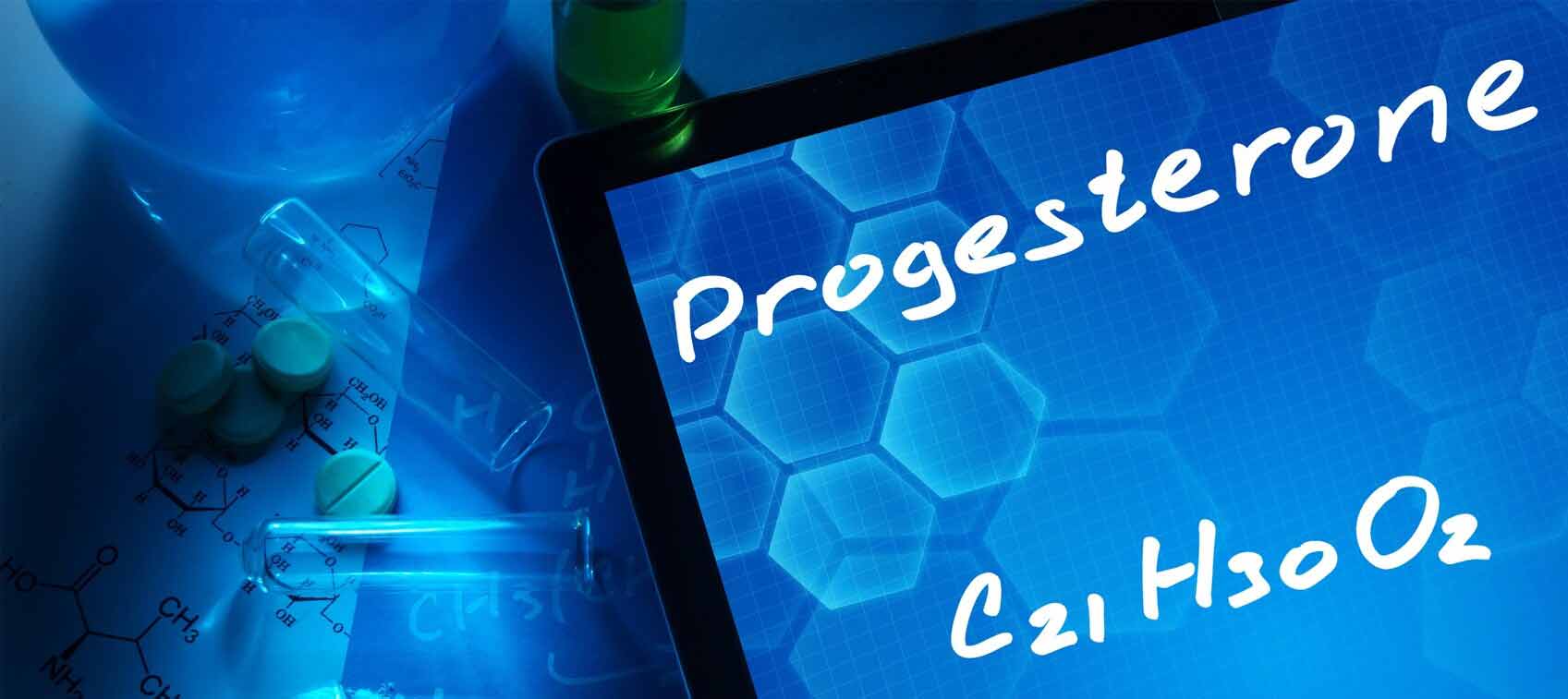
Estrogen dominance is a growing problem in this country...but when it comes to hormone balance, eliminating excess estrogen is only half the equation. We also need to focus on increasing progesterone levels, in both men and women. Natural progesterone has been shown to protect the brain and improve memory, relieve anxiety, and prevent epileptic seizures.
Progesterone In Men
For men, progesterone and testosterone decrease with age. This leaves them more vulnerable to the effects of excess estrogen. I highly recommend that men have their testosterone levels checked frequently, particularly if you are experiencing any prostate problems, loss of libido, a decrease in bone density, urinary dysfunction, gynecomastia, an increase in cholesterol levels, or chronic fatigue. All of these have been associated with excess estrogen.
If tests reveal that you need testosterone, a compounding pharmacy can formulate topical, natural testosterone at a percent sufficient to keep testosterone levels in the normal range. Please don’t use synthetic hormones, as they increase risk for cancer and cardiovascular disease.
Progesterone In Women
It is common for a woman’s estrogen levels to drop up to 50 percent by the time she reaches menopause. You may be surprised to know that progesterone levels also drop, but they will often fall much further...to ZERO.
A dramatic drop in progesterone levels can lead to an increase in migraine headaches, lack of sleep, and bone loss. Interestingly, estrogen is often prescribed to help slow bone loss, and it does appear to slow down the activity of osteoclasts, the cells that break down bone. However, progesterone goes a step further and actually stimulates new bone formation, which is necessary to reverse osteoporosis.
Progesterone is also crucial when it comes to breast and uterine cancers. There is a great deal of misunderstanding in this area. The public and many doctors have been led to believe that progesterone actually raises the risk of cancer. This misconception stems from equating the terms progesterone and progestin. There is a huge distinction that needs to be clarified here. Progestins are synthetic hormones. Synthetic hormones raise the risk of cancer. Natural progesterone does no such thing.
In fact, natural progesterone can be life changing for women. One study evaluated the effects of low progesterone levels on 1,083 women being treated for infertility. They were treated from 1945 through 1965 and then had continuing evaluations for a total of 33 years until 1978. Researchers discovered that infertile women with a progesterone deficiency had a premenopausal breast cancer risk 540 percent greater than women whose infertility was not hormone related. Furthermore, the progesterone deficient women had a 1,000 percent greater risk of death from all types of cancer.
Women undergoing surgery for breast cancer have significantly higher survival rates when progesterone levels are higher at the time of surgery. One study involved 96 women who underwent surgery for breast carcinoma. On follow up at 10 years, there was a 72 percent survival rate among those who had their surgeries performed 12 or more days after their last menstruation, when progesterone levels were highest. However, the survival rate among those who had surgery one to 12 days after the starting date of their menstrual period, when progesterone levels are the lowest, was only 40 percent.
Naturally Increase Progesterone
You can naturally increase progesterone using a natural progesterone supplement. Natural progesterone is safe and easy to use, with none of the harmful side effects of other hormones. About the only thing it might do is alter the timing of your menstrual cycle if taken at the wrong time of the month. With natural progesterone creams, which have been around for the last 30 plus years, the absorption rates can vary, measuring dosages can be difficult, and concentrations depend on each manufacturer.
I personally believe that oral drops are now the better way to go. They get absorbed into the gums and tongue almost immediately. The drops I recommend are Dr. Peat's Kenogen Progest-E Complex. Each drop contains about 4 mg of progesterone, and a typical dose would be three to four drops per day. I recommend splitting the daily dosage; half in the morning and the other half in the the afternoon or evening. Since this product is absorbed in the mouth, rub the drops around your gums with your tongue before swallowing, and don’t rinse your mouth with any liquids for several minutes afterwards.
There are some situations that will affect the possible need and/or dosage of natural progesterone:
- If a woman has had her ovaries removed, natural progesterone should be taken on a daily basis. The ovaries are the body’s main source of progesterone. Also, women who have had their thyroid glands irradiated or removed may need progesterone on a continuing basis in addition to their thyroid hormone (such as Armour) and iodine. Estrogen causes the liver to produce high levels of a protein called thyroid binding globulin, which binds to the thyroid hormone and decreases the amount available to the body. Natural progesterone may be needed to keep estrogen’s activity in check. In addition, iodine decreases the sensitivity of estrogen receptors, and by doing so, it helps protect against breast cancer, fibrocystic breast disease, and polycystic ovarian syndrome. I recommend using a drop or two daily of Iosol, an excellent iodine source.
- In menstruating women who have PMS, other menstrual problems, or estrogen dominance, it is generally recommended that the natural progesterone be taken on day 14 of the cycle (day 1 is the first day of the period) through day 28 (until the next period starts).
- For women with erratic and irregular menstrual cycles, take natural progesterone on a daily basis for two to three months. That will often be enough time to overcome an estrogen/progesterone imbalance.
- In menopausal women, two to four drops daily can be a godsend when it comes to alleviating hot flashes, stabilizing moods, overcoming depression, and dealing with other symptoms.
Using these basic guidelines, it’s not necessary to perform blood tests to monitor progesterone levels. Listen to your body. It will be obvious if the natural progesterone is helping or not. You may even be able to lower the daily dosage or eliminate it altogether (unless you no longer have your ovaries). This will depend on a variety of factors, including your exposure to xenoestrogens, the strength of your thyroid and adrenal glands, your weight, symptoms, diet, exercise, etc. In general, though, I think you’ll find the benefits are astounding.


